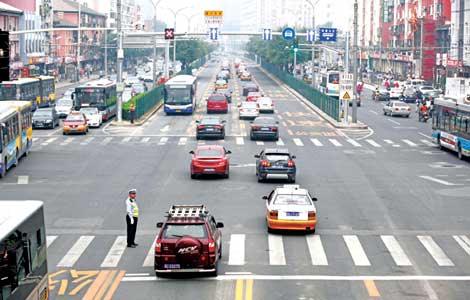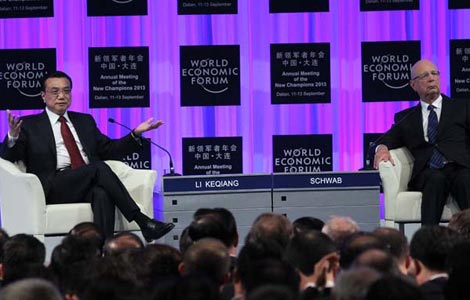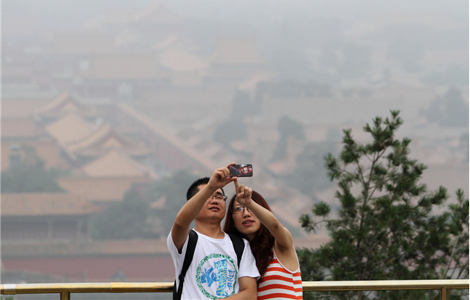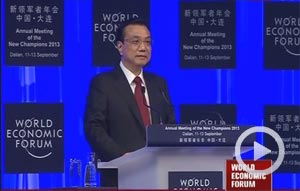Migrants in urbanization
Updated: 2013-09-12 07:34
(China Daily)
|
||||||||
Any country would be arduously challenged by how to put under effective and orderly urban management a floating population the size of China's.
A report published by the National Health and Family Planning Commission on Tuesday indicates that China's migrant population, those who have left their rural hometowns for employment or education elsewhere, reached 236 million in 2012, one-sixth of its total population.
According to the report, the average age of the huge floating population is 28 and more than half of them were born after 1980. Compared with their predecessors who headed to cities mainly to make a living, the new generation usually leaves home earlier and has a stronger will to settle in cities and integrate themselves in the urban areas where they dwell.
With the government's accelerated efforts to advance urbanization, it is estimated that China's cities will face an influx of about 200 million new migrant workers by 2025.
The accelerating influx of people into cities will help spur more domestic consumption, which is needed now that exports and investment are losing steam as main drivers of growth.
But while manufacturing once played a major role in offering employment to migrant workers, its role is on the decline. Only 33.3 percent of migrant workers were engaged in the manufacturing sector in 2013, a decline of 4.1 percentage points from 2011. That means more jobs need to be created in other areas to digest new arrivals.
Especially as the new in-comers, who are generally better educated than their predecessors, have a stronger desire to enjoy the same treatment as their urban counterparts and a greater reluctance to be treated as "second-class" citizens. Their disgruntlement over "trivial inequalities" will more easily emerge than that of their fathers.
The government needs to make greater efforts to push reform of some long-controversial institutions such as the hukou system for household registration, to ensure that migrants enjoy the same services as urban residents.
In this sense, the new Chinese leadership's plan to pursue a new type of urbanization, in which the focus will be on the quality of life and the environment instead of the expansion of the sheer city size, deserves applause for its courage in facing the difficulties ahead.
(China Daily 09/12/2013 page8)

 Plenty of fizz
Plenty of fizz
 Traffic about-face seeks to ease congestion
Traffic about-face seeks to ease congestion
 Another iPhone4 explodes while charging
Another iPhone4 explodes while charging
 Premier stresses transformation of the economy
Premier stresses transformation of the economy
 Soyuz capsule returns from space station
Soyuz capsule returns from space station
 China's Christian churches reduce leaders' age ceiling
China's Christian churches reduce leaders' age ceiling
 Student's rare blood bonds Kazakhstan and China
Student's rare blood bonds Kazakhstan and China
 Apple's low-end phone price disappointing
Apple's low-end phone price disappointing
Most Viewed
Editor's Picks

|

|

|

|

|

|
Today's Top News
US moves against China firms criticized
3 sentenced to death for Xinjiang terror attack
Xi welcomes talks on Iran
Assad agrees to hand over chemical weapons
Time of opportunities, challenges
China sets caps for rare earths exploration
Ending non-tariff barriers benefits global economy
Developing nations need shift to balanced growth
US Weekly

|

|






